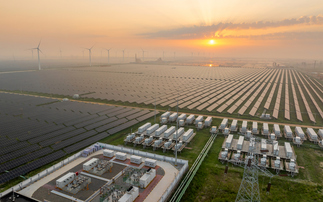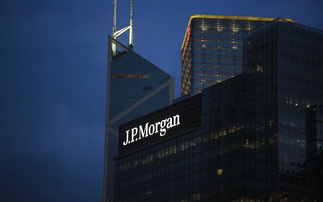A broader focus of sustainable finance is needed to support sustainable business models covering both environmental and social elements, argues Constance Chalchat from BNP Paribas CIB
The recent Covid-19 pandemic is unprecedented in how it has affected every aspect of our lives. The huge international effort to mobilise resources across the public and private sector to tackle the coronavirus crisis has led to social issues rightly being high on the sustainable finance agenda. The impact the virus has is systemic, and the United Nations Sustainable Development Goals (SDGs) - with their broad coverage of issues from inequality and education to climate action and biodiversity - provide a strong roadmap to refocus sustainable finance towards several SDGs, which has never been more important.
This crisis provides an opportunity to rebuild the global economy in an equitable and greener way, including growing transition finance and reinventing supply chain models to move towards a low carbon, better balanced, and fairer future.
Sustainable finance has mainly been associated with green finance. This was partly because the first investable sustainable finance innovations stemmed from the green bond market. Social bonds which use proceeds for social purposes such as education or healthcare, accounted for only five per cent of the total sustainable bond market in 2019. This issuance dynamic towards green rather than social is mirrored in investor perceptions, and a BNP Paribas survey showed that investors found 'social' the hardest ESG factor to integrate into their analysis (in comparison to environment and governance). The policy environment pre-Covid-19 also heavily focussed on environment, supported by the development of green finance initiatives from central banks and governments.
So what has changed for sustainable finance? The fallout from Covid-19 requires investment and immediate response mechanisms to support society. Governments are also mobilised behind this. Investors and issuers are aware of the vital role they can play in channelling finance to support these efforts too. Social bonds, which tackle social SDGs are now becoming more important in this fight against the virus impacts. Over the last few weeks, multiple development banks have stepped up to issue social bonds. The Nordic Investment Bank (NIB) issued an inaugural 'Response Bond', which finances healthcare systems and labour market solutions to alleviate the social consequences of the crisis on communities and supply chains. The same week the European Investment Bank (EIB) issued a €1bn Sustainability Awareness Bond (SAB) to support European companies, health interventions, and the economy as a whole in areas directly related to the fight against Covid-19.
When identifying the immediate changes resulting from Covid-19, it becomes clear that the crisis exacerbates inequalities. A recent report from the UN showed the systemic impact on several SDG issues. These included poverty from income loss, supply disruption impacts on energy and resource use, food production, gender inequality from increased domestic violence risk in lockdowns, reduced climate engagement, and educational access.
How can sustainable finance further support responses to these issues? Social SDGs can provide a focussed framework for sustainable finance. For example, Covid-19 is a key moment for investors, and banks like BNP Paribas to support healthcare systems through channelling capital to financing development institutions, corporates in the health supply chain, and mobilising our own resources to help communities most affected. Sustainable finance will support the economy at large by focusing on social matters. Essentially, sustainability has to be holistic and not just focussed on green finance.
In the next few months and years, we believe the right way out of this health crisis and its impacts on the economy and citizens is to rebuild a cleaner, fairer, more balanced world. Long-term performance anchors Socially Responsible Investment (SRI), and the fundamentals of climate and ESG risk will remain key drivers for investors. Early data suggests that ESG-oriented investment strategies have outperformed in the down turn, and there has been a significant pickup in the number of new funds focused on ESG.
Cleaner supply chains will also become increasingly important in the coming months. Many have remarked about the reduction in pollution arising from lockdown measures. This crisis creates the possibility to understand the role of transition finance in decarbonising these previous CO2 hotspots going forward, as it is easier to map where the highest intensity operations of companies are.
There is also a case for new models of supply chains, because Covid-19 has exposed the weaknesses, and opened up new approaches. Lockdown meant that some companies with global supply chains had to halt operations. It has also led numerous companies to mobilise their manufacturing capabilities to provide immediate resources to fight the virus: from car manufacturers making ventilators, to perfume makers producing hand sanitiser. Put under significant pressure to find solutions, each country has the potential to regain economic agility.
This pandemic may therefore trigger a reshuffling and geographical diversification of supply chain models. This could include consumers eating locally grown food, greener travel, and more socially minded policies to support labour security and help communities. As we have seen during this crisis, there is also huge potential for more circularity across multiple sectors. Companies and sectors with similar processes and machinery could potentially share aspects of their supply chains as they have done during the crisis, leading to localisation, materials reuse and better engagement across several industries.
The crisis ultimately calls for a broader focus of sustainable finance to support new, sustainable business models that encompass both environmental and social elements, with a strong focus on local close-sourcing and circular economy.
Constance Chalchat is head of company engagement at BNP Paribas CIB (Corporate & Institutional Banking)








